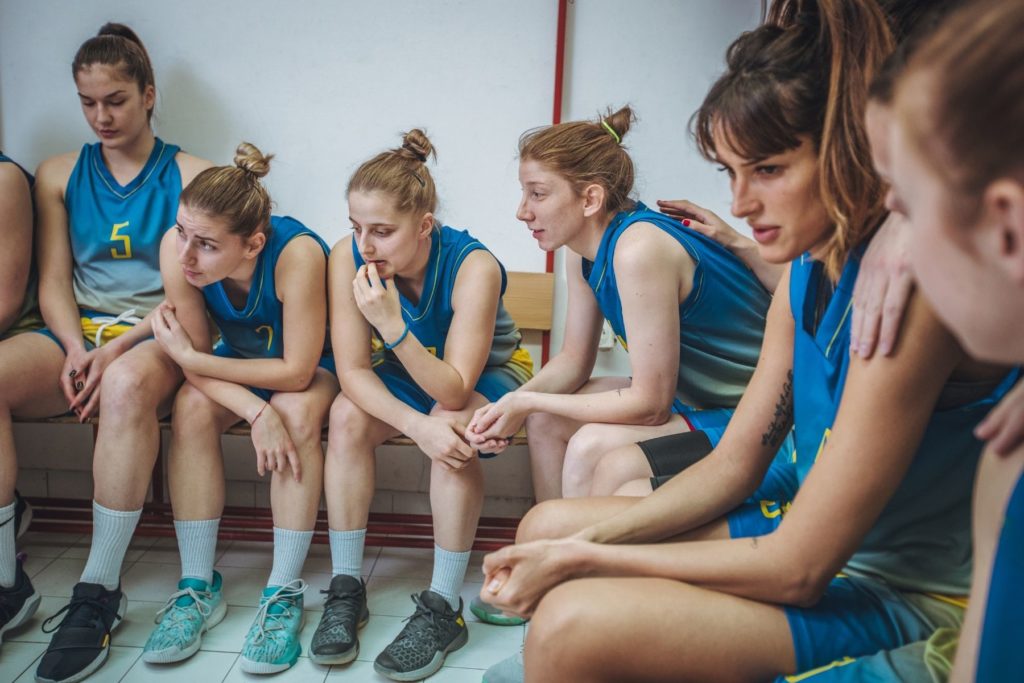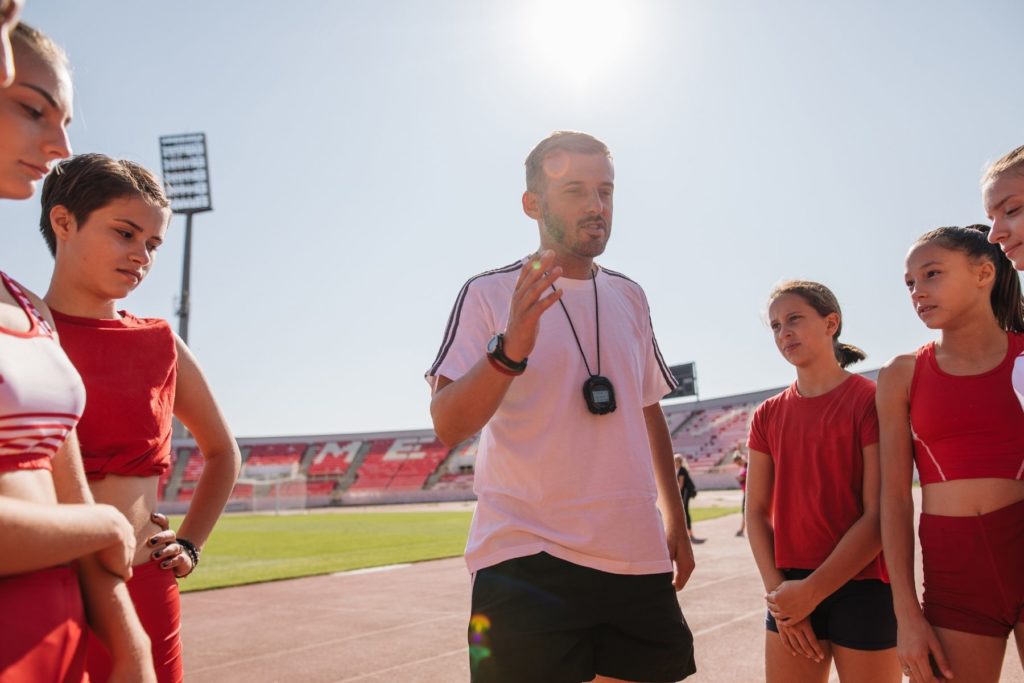Tips For Coaches: Weight and Body Positivity
July 4, 2022

Weight and nutrition can be hard topics for coaches to address with their athletes. Of course, optimizing an athlete’s and team’s performance is one of your main priorities. In this, nutrition can play a role in enhancing athletic performance. In addition, body composition can also play a part, although weight should be less directly associated with performance.
Unfortunately, there tends to be preconceived notions in sport about the effect of weight or leanness on success. In addition, certain risk factors and personality traits more common for athletes, like perfectionism, competitiveness, competition attire, etc., can increase the risk of body image and eating concerns.
So, what is the best way to tackle any weight-related concerns you have as a coach head on? Further, how can these concerns be addressed while creating a body positive culture among the team? As a sports dietitian, I get asked this question a lot.
Start with these basic guidelines to help support and empower your team around this topic:
1. Don’t make it about weight
Have you seen some weight changes in one of your athletes that you’re concerned about? This can happen when you see an athlete making personal changes that don’t seem to be lining up well with performance. When addressing this, take weight out of the equation as much as possible. It’s not the weight that you are concerned about anyway, it’s the potential or noticeable impact on performance. Next, what are you seeing on the field or on the court, in terms of goals scored or time to finish? Take notes on objective, performance-focused measures that may have changed for the athlete and keep any conversations you have with the athlete here.
2. Eliminate “fat talk”
I don’t care what type of class or team you coach. “Fat talk” has been shown in research to be problematic and can even lead to disordered eating. This form of derogatory talk focuses on weight and body shape and often involves self degradation. Unfortunately, fat talk is just as common in sport culture as it is among women of all ages. Whether it is elementary school girls or fully grown, adult men, there is no need for fat talk, serious or joking. Keep their eyes and team conversations on performance. Make a rule around it. Just like being late or arriving unprepared, there will be no room for fat talk among teammates.

3. Stay educated on the topic of weight management
As a coach, your words can have a big impact and influence on your athletes. It is your responsibility to ensure that you provide your athletes with safe information and direct athletes to a professional when out of your reach. It can be a good idea to educate yourself on the basics of sports nutrition and healthy weight management. With this, it may become easier to identify athletes that are taking it to the extreme. Further, you will be able to provide your athletes with correct, non-harmful information on eating to support performance. Finally, educating athletes about the dangers of unsustainable weight loss methods on health and performance may deter them from attempting these routes. Ultimately, directing athletes to a registered dietitian for individualized nutrition support may be best.
4. Understand that your athletes are surrounded by enough body pressure
Young athletes are under a lot of pressure when it comes to body shape, size and weight both in and outside of their sport. Between social media, school, athletic peers, and family, it can be overwhelming. By taking the focus off of weight, you can minimize the body pressures that come from an athlete’s sport and the risk of athletes developing harmful eating and exercise behaviours. Sport should be a place for athletes to have fun and maybe even relieve stress from other areas of life. Sport should help athletes celebrate their bodies and what they can do, not how they look.
5. Don’t comment on weight, even when it’s positive
Comments on weight, even when they seem complimentary, can still be harmful. You may never know what’s going on behind the scenes in an athlete’s life. When praising an athlete for getting leaner, you may unknowingly be praising them for restrictive eating and excessive exercise as well. Receiving praise for these kinds of harmful weight management behaviours can encourage athletes to continue and teammates to follow suit. Further, focusing on weight, whether positive or negative, may lead athletes to root their worth and confidence in appearance and body shape. Instead, change the focus and teach athletes to derive confidence from their abilities and personality. Praise athletes for performance related achievements, their dedication, and their teamwork. See last weeks blog HERE for more tips on avoiding body related comments.

If you or your athlete are looking for more individualized support when it comes to sports nutrition, our non-diet dietitian team is happy to offer guidance. See our services HERE.